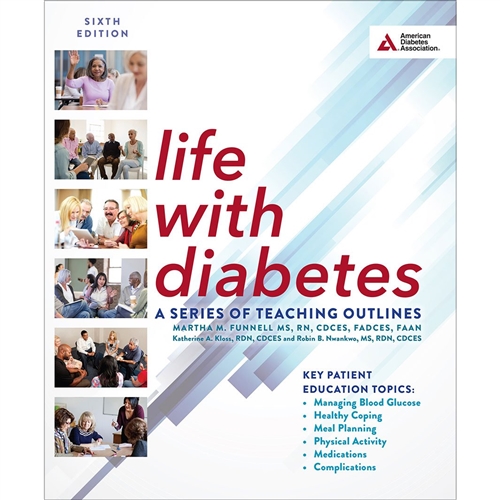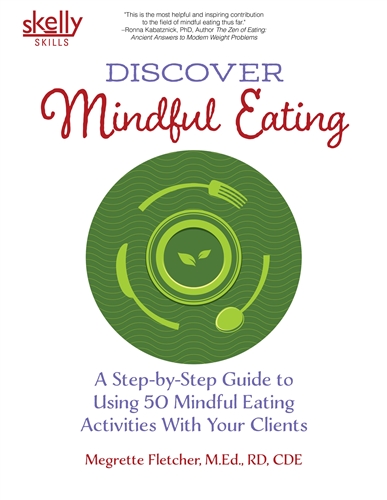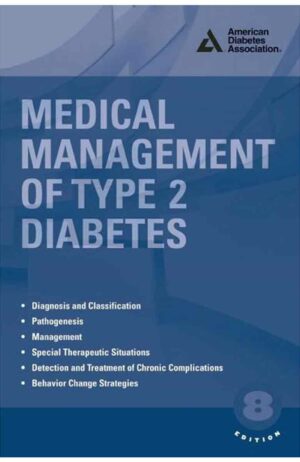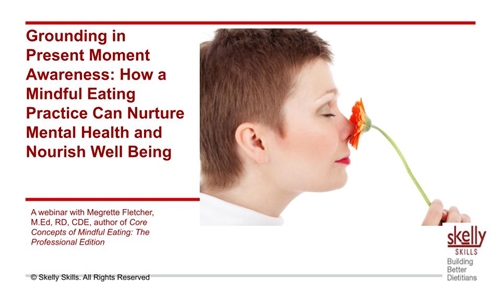

From: $175.00
Brand New Edition! Recharge your diabetes education program with this comprehensive, user-friendly resource. Refine your teaching and counseling skills while you provide your clients with the self-care skills they need in individual or group sessions. Utilize the tools provided to take your diabetes program to the next level. Features:
This course is CDR-approved for 32 CPEU for RD/RDNs and DTR/NDTRs, and CBDCE-approved for 32 CEU for CDCES’s. Please note course expiration date below.
CPEU/CEU: 32
Course Expiration Date: 08/03/2026. You have until that date to complete your CPEU Evaluation or Webinar Feedback Survey for this course.
Life With Diabetes: A Series of Teaching Outlines, Sixth Edition CE Course
Course Type: 720—Preapproved Self-Study Materials, Printed.
Includes CE Evaluation/Reporting Form: You will submit it online and receive your CE Certificate immediately.
Suggested Learning Level: 2
A must-have for anyone who teaches diabetes self-management skills! Enhance your toolkit for diabetes self-management education with resources and outlines for diabetes troubleshooting, behavior change, medication management, blood glucose management, physical activity, nutrition and meal planning skills, and more. Learn how to confidently lead your client sessions with a person-centered approach to guide your clients toward success. This comprehensive resource is newly revised and updated to reflect the National Standards for Diabetes Self-Management Education and Support. Utilize the included handouts and visuals to better support and empower your clients.
Features:
Equip yourself with the knowledge and resources you need to empower your clients with diabetes self-management education. This newly revised resource provides a complete curriculum to build your program and optimally support your diabetes clients. You’ll find lessons and handouts featuring a person-centered approach to use in your individual or group diabetes education sessions. Life With Diabetes: A Series of Teaching Outlines CE course is the one resource that every diabetes educator needs to provide high-quality diabetes self-management education covering a wide range of topics.
Published 2020. 538 pages. 32 CPEU CE Course. See the LNCs & PIs tab for suggested learning codes.
Discover Skelly Skills’ other diabetes CE courses.
Learn more about author Martha M. Funnell, MS, RN, CDCES, FADCES, FAAN.
CPEU/CEU: 32 NOTE: Course Expiration Date: 08/03/2026. You have until that date to complete your CPEU Evaluation or Webinar Feedback Survey for this course.
1.3 Applies customer-centered principles in practice.
1.3.1 Applies strategies that engage the customer in a collaborative approach.
1.3.2 Recognizes the strengths and limitations of a customer.
1.3.3 Builds rapport and trust within the relationship while respecting boundaries.
1.3.4 Communicates the risks; benefits; disadvantages; alternatives; and cost of the proposed treatment plan, contract, and statement of terms or scope of work and confirms customer understanding.
1.3.5 Identifies and respects economic and socio-cultural factors when determining the goals and wants of the customer.
1.3.6 Develops and implements culturally-appropriate strategies when delivering service.
10.2.10 Monitors and identifies factors affecting patient progress in meeting goals.
10.2.12 Establishes new goals and a new plan of care when original or interim goals are met.
10.2.9 In collaboration with the client and interdisciplinary team (including NDTRs), selects and implements current and evidence-based nutrition interventions and patient education.
10.3.1 Demonstrates knowledge and applies principles of the informed consent process in accordance with organization policies, protocols and state and federal regulations.
10.4.1 Collects information related to the patients use of pharmacotherapy and dietary supplements.
10.4.3 Evaluates, educates and counsels on the interrelationship and impact of pharmacotherapy on nutrient absorption.
12.4.3 Utilizes appropriate behavioral change theories, social marketing, behavior economics and communication strategies in the delivery of nutrition programs.
12.4.5 Provides nutrition information and education to the community.
14.1.6 Measures goals and tracks outcomes against established benchmarks to ensure desired goals, standards and regulatory requirements are met.
2.1.3 Tailors message to meet the needs of the target audience.
7.3.3 Increases awareness of infection prevention and control for self, staff, customer, public and organization.
8.1.2 Applies knowledge of food and nutrition as well as the biological, physical and social sciences in practice.
8.2.1 Assesses the physical, social and cultural needs of the individual, group, community or population
8.2.3 Implements individualized services to reflect customer-centered approach as it pertains to the customers physical, social, cultural, institutional and economic environment.
8.3.1 Maintains the knowledge and skill to manage a variety of disease states and clinical conditions.
8.3.6 Keeps abreast of current nutrition and dietetics knowledge and trends.
9.1.3 Identifies and analyzes factors that influence behavioral change.
9.1.4 Evaluates factors that influence the learning process and skill building.
9.1.5 Assesses, evaluates and applies educational theories.
9.2.1 Assesses learning needs of the individual or target group.
9.2.3 Applies educational theories and uses assessment results for planning process and development of materials and teaching
9.2.4 Collaborates with learner(s) and colleagues to formulate specific, measurable and attainable objectives and goals.
9.3.2 Develops and/or selects a variety of learning activities based on a plan of action and outcomes, and the needs of the individual, group, community and population.
9.4.2 Selects and uses appropriate content and teaching methods to meet individual and group needs.
9.4.4 Adjusts education plan to meet the needs of the individual, group and population.
9.4.5 Implements an individualized teaching plan in order to promote, maintain and enhance nutritional health and learning.
Only logged in customers who have purchased this product may leave a review.
Skelly Skills is a provider of continuing education for dietitians (RD/RDNs), certified diabetes care and education specialists (CDCESs), registered nurses (RNs) and diet technicians, registered (DTR/NDTR). We provide CPE, (often called CEU, CE, and CPEU) for all of these groups, and all of our courses are approved for CE by the Commission on Dietetic Registration (CDR) and the CBDCE for CDCESs. Skelly Skills receives no commercial support and does not accept advertising or sponsorship of any kind.

CPEU/CEU: 41

CPEU/CEU: 25

CPEU/CEU: 40

CPEU/CEU: 1


Purchase your webinar and receive a link to the webinar immediately.
Watch your webinar and then submit the CE Feedback Survey form by the course expiration date.
After submitting your CE Feedback Survey, you will be able to download your CPEU/CEU certificate as a pdf and keep for your records.

We use cookies to ensure you get the best experience. By using our website or clicking "accept", you consent to cookies.
Diadra Harnden –
I was quite pleased with the breadth and depth of information and the resources provided. The easy-to-copy and access teaching materials and easy-to-follow outlines are a great resource to have in guiding our newly formed Diabetes Support Group. I also thought the evaluation was very helpful and well done…thanks.
Megan Moran, RD, CDE –
I must say, I really really enjoyed this! I have done many self study programs and this one was top notch and so practical. Thank you!
N.M. –
This manual will be a great diabetes reference for me in the future. It covered all the topics I would teach, and is an excellent continuing education resource. Thank you.
Dessa Hartz –
This program was unique compared to other self-study material I’ve completed. It is a real-world teaching curriculum, with supporting materials. I learned a lot from the sample questions and activities throughout the outlines. I found this resource to be valuable in making my education program more effective. Excellent job!